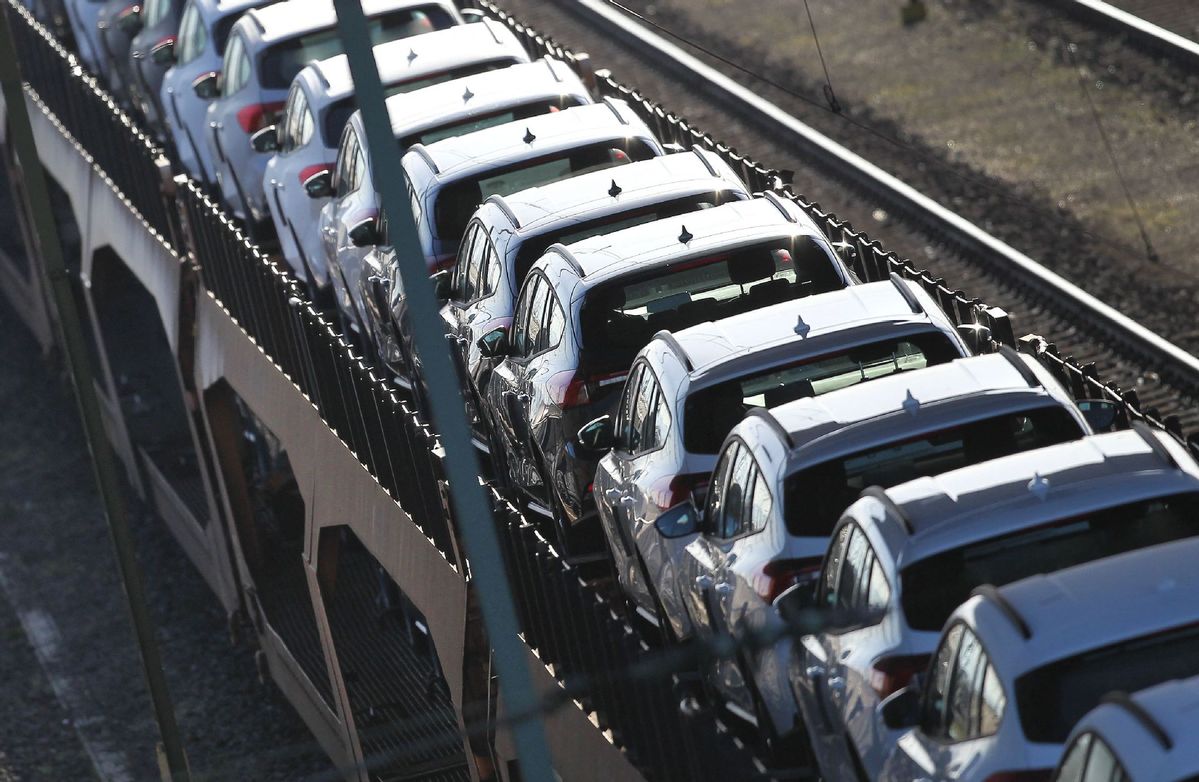Germany struggles to reinvigorate economy
By CHEN YINGQUN | China Daily Global | Updated: 2023-09-04 09:16

Structural problems, geopolitical issues lead to its declining competitiveness
Germany, long considered the powerhouse of European economic growth, is struggling to reinvigorate its flagging economy, with attempts to find solutions largely fruitless, analysts say.
The country's GDP is projected to shrink by up to 0.5 percent this year, the German Economic Institute said last week. That drop is driven by high inflation and interest rates as well as by problems in foreign trade, it said.
Earlier the statistics agency Eurostat had said Germany's GDP was stagnant in the second quarter compared with the first quarter, against market forecasts of 0.1 percent growth.
Tian Dewen, a researcher of European issues at the Chinese Academy of Social Sciences in Beijing, said Germany's long-term problems include insufficient domestic demand, excessive reliance on foreign production and markets, and a lack of innovative drive. These factors collectively hinder the country's ability to maintain strong economic growth, he said.
In the short term the direct cause of the country's economic stagnation is increased energy prices because of the Russia-Ukraine conflict, which has reduced Germany's economic competitiveness, Tian said. The United States' Inflation Reduction Act is exacerbating German businesses' problems, he said.
"With the decline in Germany's economic competitiveness, the 'European economic circle' centered on Germany faces structural crises that may have a significant impact on the global economy."
He Yun, an associate professor in the School of Public Administration at Hunan University in Changsha, said Germany's economy is facing structural problems and geopolitical challenges.
An aging workforce and low birthrates put Germany on course to be short of up to more than 3 million workers by 2030, she said. This shrinking labor pool has driven wage growth and strained the social security system that makes high corporate tax necessary.
"Coupled with low digital adoption, German productivity is losing its competitiveness, and innovation and investment have been hampered."
Moreover, Germany's large manufacturing sector, which accounts for about 20 percent of its GDP, is made vulnerable by rising energy prices and trade tensions because of the Russia-Ukraine conflict.
While German energy prices have fallen since last year, they remain higher than those in many non-European countries. As a result, output in Germany's energy-intensive manufacturing industries has fallen 17 percent compared with early 2021, she said.
To revive Germany's struggling economy the federal government has undertaken significant measures. Last week it agreed on generous tax relief for companies. The measures are aimed at alleviating the fiscal burden on small and medium-sized companies by about $7.55 billion a year.
"However, because of Germany's declining competitiveness in the global economy, these minor adjustments are likely to have limited impact on reviving the economy, and they are unsustainable," Tian said.
Late last month the federal government approved a new law aimed at tackling labor shortages by attracting skilled workers from outside the European Union.
The Federal Employment Agency said in its annual analysis that 200 out of about 1,200 occupations it surveyed had labor shortages last year, up from 148 the previous year.
By facilitating immigration and access to residency rights, He Yun said, Germany hopes to attract more foreign workers to fill jobs and contribute to the economy.
The success of these policies will be key to boosting Germany's competitiveness and economic growth because the country can no longer rely solely on European Union bloc workers to address its labor shortages, because the populations of countries such as Poland are also aging, she said.
Dong Yifan, an assistant research fellow at the China Institutes of Contemporary International Relations in Beijing, said some local workers in Germany lack the skills required for the development of emerging industries, and the country faces a significant labor shortage in non-emerging industries such as automotive and construction, and of traditional occupations such as architects, nurses, pharmacists and truck drivers.
However, Germany's plan to expand immigration to tackle the issue also faces challenges.
Neighboring countries have complained about a brain drain resulting from the free movement of EU personnel, Dong said, adding that lingering cultural clashes and societal tension between migrants and locals have been exacerbated by economic issues and the spread of extremist political ideologies.
























